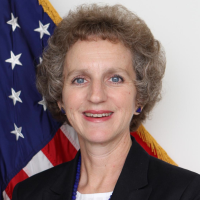- BY ABBEY GINGRAS
-
Our driver pulled into traffic in the crowded streets of Ulaanbaatar, grumbling to himself in Mongolian while nearly colliding with the car to our left. I looked at my sister in panic as I tried to grab for the seat belt hanging next to me.“Don’t put that on, it’s rude,” my sister laughed at me. “If you wear your seatbelt, you’re saying you don’t trust whoever is driving.”It was my first day in Mongolia, where I would spend the next month eating, sleeping and living like a Mongolian. Ulaanbaatar, commonly referred to as simply UB, seemed at least somewhat similar to other cities I had visited — despite the lack of seatbelts. However, I soon realized that Ulaanbaatar was nothing like the rest of the country.Mongolia holds a steady and small population of roughly 3 million people for a land area of over 600,000 square miles. To put that in perspective, France is less than 250,000 square miles with a population of nearly 67 million.Much of the country is vast wilderness, with everything from stunning mountain ranges to the expanses of the Gobi Desert. The population not living in the capital is spread out in tiny towns and villages, where many people survive in the way Mongolians have for thousands of years: herding livestock.I soon left the (relative) familiarity of the capital for my final destination — Zavkhan. The town where my sister has been living for the past year with the Peace Corps, deep in the Mongolian countryside, was nothing like anything I’ve seen before.Cattle roamed freely in the streets as men rode by us on horseback to get to the town center. The river running through the town flowed steadily from the snowmelt farther upstream. Everyone we passed stared at me with questioning eyes.In a small and relatively isolated town, visitors are easy to spot. Make those visitors American, and you’ve got a rare occurrence that everyone will know about instantly.We arrived at my sister’s ger, a semi-permanent tent that many Mongolians use as homes. Her Mongolian “family” came to meet us, greeting me and talking excitedly in Mongolian. The youngest child peeked at me from behind his mother’s legs, confused by the stranger in his home.They spoke rapidly with my sister as I stood silently, fully absorbing the idea that for the next month I would have little to no idea what anyone was saying.The few English speakers other than me included several American volunteers and Mongolians who teach English, all of whom spoke Mongolian the majority of the time. Most Mongolians only speak their native language, and the few that know a second language speak Russian due to its proximity.Over the next few days, I met dozens of Mongolians. My sister’s students followed me around the school when I visited, whispering to each other and giggling. I later learned that many of them had never seen someone with blonde hair and that they were calling me “Rapunzel.”My life continued in this routine of meeting Mongolians and following the actions of others. I ate and drank what was given to me, learning how to properly accept gifts and exchange greetings. I soon began responding to my sister with Mongolian phrases, even when we were speaking English.My experience in Mongolia is hard to summarize, because there’s nothing to compare it to that would do the country or the people justice. There are no landmarks to visit or tourist spots to see, nothing that I could describe that would make someone go, “That’s the Mongolia I know from books and movies.”Instead, I had moments. A night spent playing cards with a young Mongolian couple, acting like old friends even though we didn’t share a common language. A trip to the outhouse in the middle of the night that turned into stargazing in my sister’s yard. A questionable (but delicious) meat pancake from a stand on the side of the road.There’s no way to explain the experience of being piled into a minivan with 25 people who all needed to get into town. No way to describe hearing the beauty of a song played on a morin khuur, a traditional Mongolian instrument.Perhaps the best way to pull it all together is the happiness and peace exuding from every Mongolian. They’re content with family and friends and the town they grew up in. They don’t want for more or act rude to strangers.As I stood on a hill overlooking the Mongolian countryside, the sacred Mt. Otgontenger looming in the distance, I felt completely calm for the first time in what seemed like forever.With the land of the blue sky around me and home thousands of miles away, I was there. And I had no desire to be anywhere else.
Source:http://miamistudent.net/








